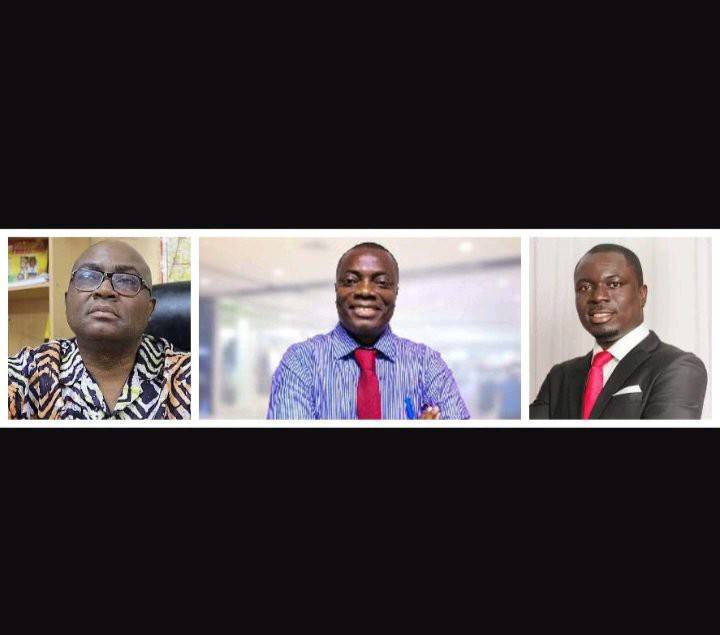As Ghana prepares for its general elections on December 7, attention is not only on the candidates and their promises but also on a different competition—one among the country's pollsters. These professionals, who predict election outcomes, are becoming an important part of modern politics in Ghana. Their forecasts spark debates, influence campaign strategies, and shape how people think about the elections.
This year, some key names in polling, like Musah Danquah of Global Info Analytics and Professor Smart Sarpong of Kumasi Technical University, are under the spotlight. Veteran journalist and pollster Benjamin Ephson, known for his long-standing role in Ghana’s political scene, has also joined the conversation. While Ephson has shared his predictions, he has not explained his methods in detail, leaving many wondering how he arrives at his conclusions.
But here’s the big question: will their predictions match the actual election results? Or will they face the same criticisms pollsters in other parts of the world, like the United States, have faced in recent years?
The rise of pollsters in Ghana
Over the years, polling has become a key part of elections around the world. In Ghana, it’s no different. Pollsters use surveys and statistical methods to try to understand what voters are thinking and how they might vote. Their work helps provide insights into voter trends, which can guide public debates and even push political parties to adjust their strategies.
But predicting elections is no easy job. Pollsters face several challenges, such as last-minute changes in voter opinions or people giving answers they think are socially acceptable rather than their true feelings. This is why you’ll often hear pollsters mention things like the "margin of error" to remind people that their predictions are not perfect.
What makes polling so tricky?
One of the hardest parts of polling is making sure the sample of people surveyed represents the entire population. Ghana is diverse, with different regions, languages, and economic backgrounds, so getting this right is tough. Timing also matters—a poll conducted weeks before the election might miss late shifts in voter decisions.
Another issue is undecided voters. Many people only make up their minds on who to vote for at the very last moment. This makes it even harder for pollsters to predict the final outcome.
And let’s not forget social desirability bias. In highly charged political environments, some voters may feel uncomfortable sharing their true preferences, either because they don’t want to seem unpopular or fear backlash.
Learning from global polling mistakes
Around the world, polling has faced challenges. In recent U.S. elections, for instance, many pollsters underestimated support for certain candidates, particularly in key states. These mistakes were often linked to flawed sampling methods, poor understanding of voter behavior, and an inability to capture diverse opinions.
In Ghana, the stakes are just as high. If pollsters get it wrong, it could damage public trust in their work and create doubts about the role of polling in the democratic process. With all eyes on the December 7 elections, Ghanaian pollsters have a lot to prove.
Who are the key players?
Musah Danquah, the Executive Director of Global Info Analytics, has been in the headlines for his detailed demographic analyses, suggesting a close race between Ghana’s major political parties. His work includes breaking down voter preferences based on factors like age, gender, and location.
On the other hand, Professor Smart Sarpong is taking a more cautious approach. A statistician and experienced pollster, he believes voter turnout could play a big role in determining the winner. Turnout, he explains, is one of the most unpredictable factors in any election.
Benjamin Ephson, a well-known journalist and Managing Editor of the Daily Dispatch newspaper, has also shared his predictions. However, Ephson has been criticized for not revealing much about how he conducts his surveys, leaving people curious about the methods behind his conclusions.
What determines accuracy?
The success of these pollsters depends on several factors. First, the sample they use must accurately reflect Ghana’s diverse population. Second, the timing of the polls is critical. If conducted too early, they might miss key changes in voter behavior. Third, they need to account for undecided voters and late shifts in opinions.
Finally, transparency is key. Pollsters need to explain how they collect and analyze their data so that people can trust their findings. Without this, their credibility could be at risk.
What’s at stake on December 7?
When Ghanaians head to the polls, it won’t just be the candidates who face a test. The accuracy of the pollsters’ predictions will also be under scrutiny. If they succeed in capturing the pulse of the electorate, they will strengthen public confidence in polling as a valuable tool for democracy.
But if they fail, doubts about the reliability of polls could grow, just as they have in other countries. The challenge for Ghana’s pollsters is not just to predict the winner but to show that their methods are sound and reliable.
As the election day approaches, one thing is clear: Ghana’s pollsters are in the spotlight like never before. Whether it’s Musah Danquah, Professor Smart Sarpong, Benjamin Ephson, or someone else, the race to accurately predict the election outcome is on. The nation is watching closely, and only time will tell who emerges as Ghana’s top pollster.




No comments yet
Be the first to share your thoughts!